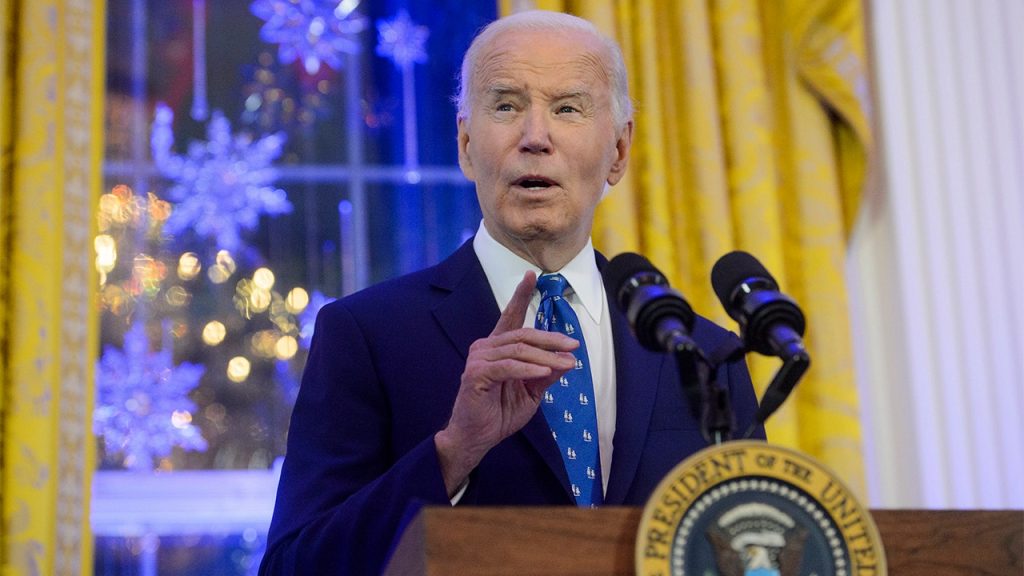Biden’s Veto and Legislative Actions
President Biden vetoed a bipartisan bill aimed at expanding the federal judiciary by adding 66 judgeships over a decade. This move, despite support from legal organizations highlighting the need to address case backlogs and improve access to justice, was justified by Biden due to concerns about the "hurried action" by the House and the potential implications of these "life-tenured" positions. This veto underscores the ongoing political maneuvering surrounding judicial appointments and the balance of power within the federal court system. While proponents argued the expansion was necessary to handle the increasing caseload and ensure timely justice, the administration’s decision highlights the complexities and potential long-term impact of such appointments.
Concurrently, Biden signed the National Defense Authorization Act (NDAA), a crucial piece of legislation outlining the country’s defense budget and policies. However, this signing came with a caveat: the inclusion of a provision banning transgender treatment for military children. This inclusion sparked debate and raised concerns about access to healthcare for transgender individuals serving in the military and their families. While the NDAA’s passage is vital for national security, the inclusion of this provision highlights the ongoing tensions surrounding transgender rights within the military context.
Trump’s Legacy and Potential Return
Former President Trump’s plans to reverse the renaming of Mount McKinley to Denali in Alaska stirred controversy. This move, seen by some as an attempt to undo a key part of President Obama’s legacy, sparked debate about the significance of symbolic gestures and the politicization of geographical landmarks. The renaming of Denali, a long-standing request by Alaska Natives, had been hailed as a step towards reconciliation and recognition of Indigenous history. Trump’s proposal to revert this change underscores the ongoing political battles surrounding historical narratives and the legacy of previous administrations.
Furthermore, discussions surrounding Trump’s potential role in the 2026 midterm elections gained traction. Republican Party Chair Ronna McDaniel’s prediction of Trump’s "very active" involvement on the campaign trail fueled speculation about his continued influence within the Republican party and his potential ambitions for a future presidential run. This foreshadows the potential for a highly charged political landscape in the upcoming midterms, with Trump’s presence potentially shaping the Republican agenda and influencing voter turnout.
Political Landscape and Emerging Issues
New York Republican Representative Elise Stefanik drew criticism for comparing sanctuary states to the Confederacy, further intensifying the debate surrounding immigration policy and states’ rights. This comparison sparked outrage and condemnation from those who viewed it as inflammatory and historically insensitive. The ongoing debate over immigration policy continues to be a contentious issue, with differing views on border security, the treatment of undocumented immigrants, and the role of state and local governments.
Meanwhile, House lawmakers rallied support for funding the Afghan visa program, countering potential spending cuts proposed by Trump. This initiative underscores the ongoing efforts to provide safe haven for Afghan allies who assisted U.S. forces during the war in Afghanistan and now face potential reprisals from the Taliban. The program’s funding remains a crucial aspect of the U.S.’s commitment to those who aided its mission and highlights the challenges of navigating post-conflict responsibilities.
Health Concerns and Investigations
Former President Bill Clinton’s hospitalization for influenza and subsequent discharge provided a brief health scare. His recovery offered reassurance to his supporters and underscored the importance of preventative healthcare measures, particularly for individuals in the public eye. This incident briefly drew attention to the health of former presidents and the public’s interest in their well-being.
In other news, a Pennsylvania woman faced allegations of voter fraud for allegedly registering her deceased father and others to vote. This incident highlights the ongoing concerns surrounding election integrity and the potential for voter irregularities. Such cases often fuel debates about voter registration procedures, security measures, and the importance of maintaining accurate voter rolls.
Finally, the ongoing efforts to locate and secure the release of Marine veteran Austin Tice, believed to be held captive in Syria, continued. The renewed hope that he is alive and will be found soon provided encouragement to his family and supporters. Tice’s case represents a complex and challenging diplomatic effort, underscoring the difficulties of navigating international relations and ensuring the safety of American citizens abroad.


